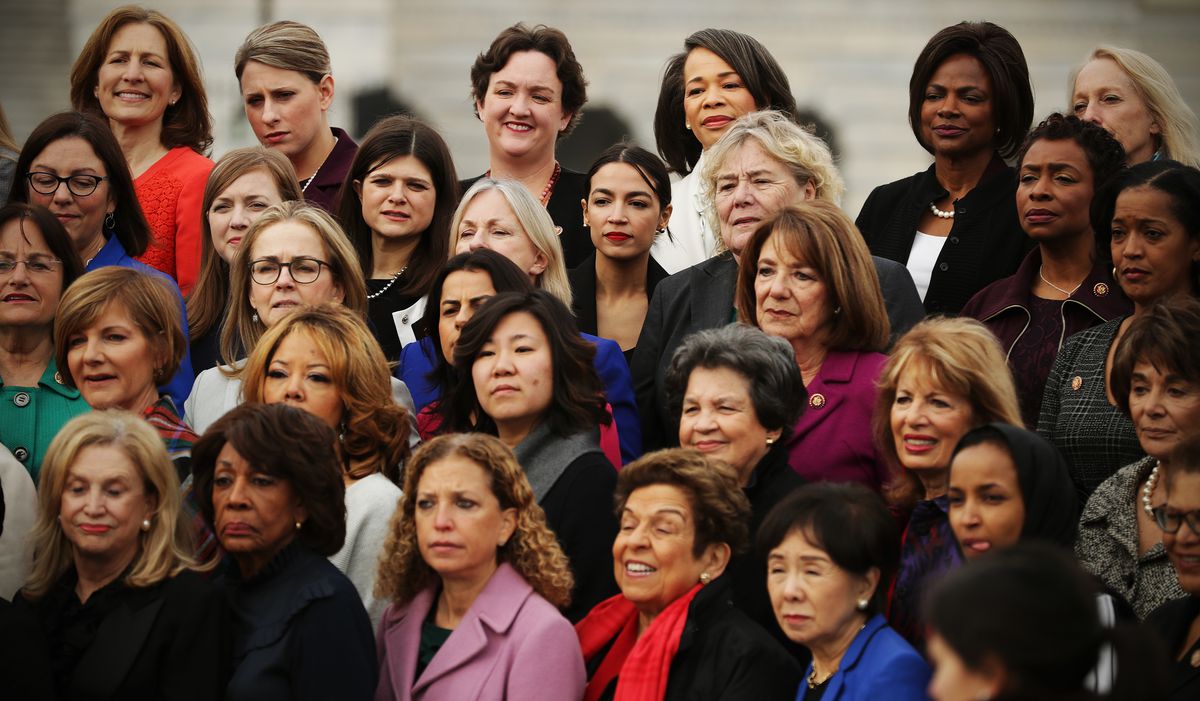By Liz Métraux for Women’s History Month and the flagship Equal Everywhere campaign of the UN Foundation
Boasting the highest numbers in U.S. history, women now make up more than a quarter of all members of the 118th Congress and fill top roles in the House and Senate Appropriations Committees. This expanded representation of women is more than just good for gender equity; a growing body of research finds the more women at the helm, the better the performance across dozens of metrics of human progress.
In fact, women in leadership may just be exactly what’s needed to achieve our ambitious global sustainable development goals.
The Case for More Women
Throughout the COVID-19 crisis, countless studies found outcomes related to the pandemic – including the number of cases and deaths – were better in countries led by women, such as Germany and New Zealand. A look at governors across the U.S. similarly found that states with female leaders had lower fatality rates.
Public health isn’t the only domain of outperformance. Institutions with women in corporate and governance leadership have succeeded in mitigating CO2 output and advancing climate action. Research in the Journal of Sustainable Development found that just a 1-point increase in a country’s score on the Women’s Political Empowerment Index yielded nearly 12% more reductions in that country’s emissions. Female representation in national parliaments also correlates with stronger climate change policies and lower emissions, according to the European Journal of Political Economy.
This trend holds true in the field of international development, as well. Looking at the late 1990s through 2009, female Directors General and Ministers within the Organisation for Economic Cooperation and Development (OECD) fared significantly better than their male counterparts in developing and investing in programs that resulted in dismantling gendered power structures.
And then there’s the impact of women’s leadership in municipal settings. From the mental health benefits for women and children who live in female-led communities, to the reduced personal experiences of gender discrimination, female leadership appears to have a powerful impact on lowering discriminatory behaviors.
Notably, these results hold true regardless of political affiliation of the women in charge.
Women at the Helm – and Heart – of Sustainable Development Goals
To be sure, these data come with caution. Gender equity is a complex body of work, and false binaries fail to account for a spectrum of gender expression.
Nevertheless, in our work with the United Nations Foundation, the impact of women in leadership and their expanded participation combine to create a powerful moment for achieving progress toward global goals, including ending world hunger, expanding vaccine access, and providing more educational opportunities.
A large part of women’s effectiveness in the sphere of development is undoubtedly attributable to the fact that women have historically comprised the majority of those most impacted by inequity. Indeed, women make up more than two-thirds of the world’s nearly 800 million illiterate people, and just one in three rural girls around the globe attend secondary school. Women also provide the lion’s share of unpaid labor, averaging about three times as many hours each day than men in much of the developed world, and more than seven times that of men in northern Africa and western Asia. Moreover, less than half of women of working age participate in the labor market.
There’s clearly work to be done. It’s also clear that women are uniquely poised to take the lead. Because it turns out that empowered women do more than empower other women; they inspire and activate everyone.
So kudos, 118th, for welcoming more women and more people of color to your ranks than ever before – and for American voters who shepherded the progress. While the numbers don’t yet match the broader population, in the long arc toward justice, we’ll count that as a win.




